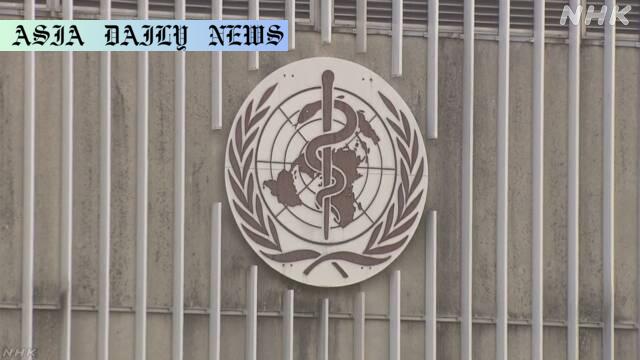WHO budget, the World Health Organization plans to slash its two-year budget after the US announced its withdrawal as a key donor.

Introduction: WHO Plans Severe Budget Cuts
The World Health Organization (WHO), a leading global health institution, has announced potential budget cuts of approximately 400 million dollars for its upcoming 2026-2027 period. This cost-reduction effort stems from the recent decision by the United States to withdraw from the organization—a move that significantly impacts the WHO’s financial stability, given that the US is its largest contributor. The adjustment aims to recalibrate the organization’s priorities amidst a foreseeable funding vacuum, while member states deliberate on sustainability at an executive board meeting in Geneva, Switzerland.
Background: The US Withdrawal and Its Implications
At the heart of this shock to the WHO’s operational budget is the announcement by US President Donald Trump to pull the United States out of the organization. The decision, accompanied by an executive order, sparked a polarized global reaction. The US accounted for a substantial portion of the WHO’s financial base, driving much of its programming and response efforts in combating infectious diseases and promoting global health equity. The abrupt announcement has not only left a financial void but also raised pressing concerns regarding the organization’s ability to effectively tackle pressing international health emergencies.
Proposed Budget Adjustments
A formal document released during the Geneva meeting suggested trimming the WHO’s budget from a proposed 5.3 billion dollars to approximately 4.9 billion dollars. This recalibration takes into account the shortfall the US withdrawal will create. WHO Director-General Tedros Adhanom Ghebreyesus has also instructed the organization to impose a freeze on recruitment, reduce travel expenses, and pursue other stringent cost-cutting measures. These efforts showcase the organization’s attempt to brace itself for financial adversity while maintaining critical operations.
Concerns Over Global Health and Infectious Disease Response
Observers and health professionals have voiced concerns over the ramifications of these financial constraints. Developing countries, which often rely on the WHO for assistance in infectious disease management, healthcare system strengthening, and emergency response, could face dire impacts. Budgetary limitations may compromise efforts to combat global outbreaks, facilitate vaccine distribution, and address longstanding health inequities in underprivileged regions.
Tedros Adhanom Ghebreyesus’ Plea
In response to the unfolding developments, Tedros Adhanom Ghebreyesus appealed to Washington to reconsider its withdrawal stance. During the Geneva conference’s opening session, he reaffirmed the WHO’s impartiality, emphasizing its mission to support all countries and people. This assertion was seen as a retort to President Trump’s earlier claims that the WHO was partial toward China, prompting the US’s decision to sever ties.
Impact on International Collaboration
The US withdrawal and subsequent funding cuts pose broader challenges to international collaboration in health governance. As one of the world’s leading economies, the US has historically played a pivotal role in financing global health initiatives through the WHO. Its exit creates a risk of delegitimizing the institution’s authority, undermining progress toward ensuring universal health security.
Conclusion: A Decisive Moment for Global Health
The unfolding scenario highlights a critical moment for the WHO and its member states. The onus now lies on WHO leadership to navigate through financial challenges while safeguarding its core mission of fostering international health equity. As stakeholder discussions continue, the implications of these developments will likely reverberate across global health systems. Strategic alliances, alternative fundraising efforts, and renewed multilateral cooperation could provide the much-needed impetus to stabilize the organization amidst uncertainty.
Commentary
The Interplay Between Politics and Global Health
The WHO’s financial crisis underscores the intimate connection between politics and global health. The United States, as the largest contributor to the organization, wields considerable influence over the WHO’s strategy and agenda. Therefore, the Trump administration’s withdrawal announcement is more than just a budgetary dent—it is a stark reminder of how political decisions can ripple through global institutions, affecting lives in vulnerable regions.
The Ethical Implications of Budgetary Constraints
The proposed budget cuts raise ethical dilemmas surrounding international health equity. The WHO’s operations often benefit developing nations, where health infrastructure is weak, and resources are critically limited. A reduced budget could starkly impede progress in combating infectious disease outbreaks and achieving significant public health milestones. It questions the global responsibility richer nations, such as the US, bear in fostering a healthier and more equitable world.
Charting a Path Forward
Despite the challenges, this moment also presents an opportunity for innovation and reform. The WHO must explore alternative funding sources, engage additional stakeholders, and prioritize efficiency across its operations. Additionally, member states must rally together in shared solidarity, ensuring that the organization can fulfill its mandate, despite financial setbacks. Moments of crisis often spark renewal, and this could be a turning point for reimagining the role and scope of the WHO.


